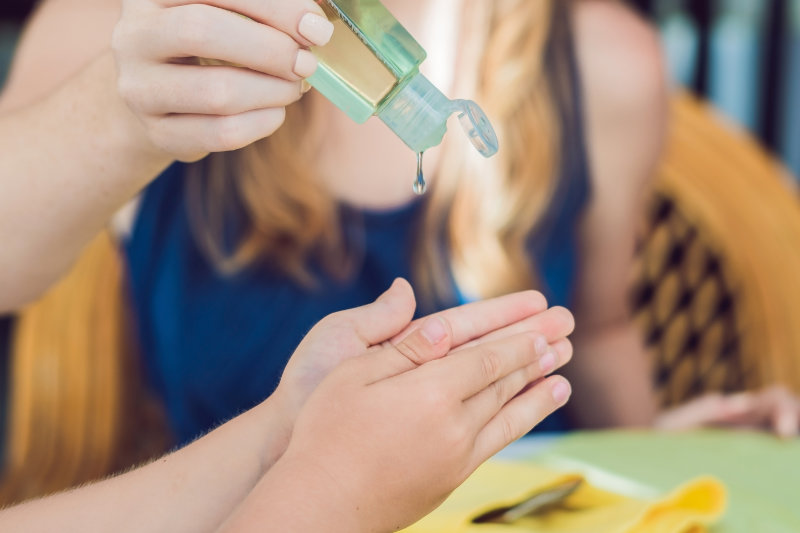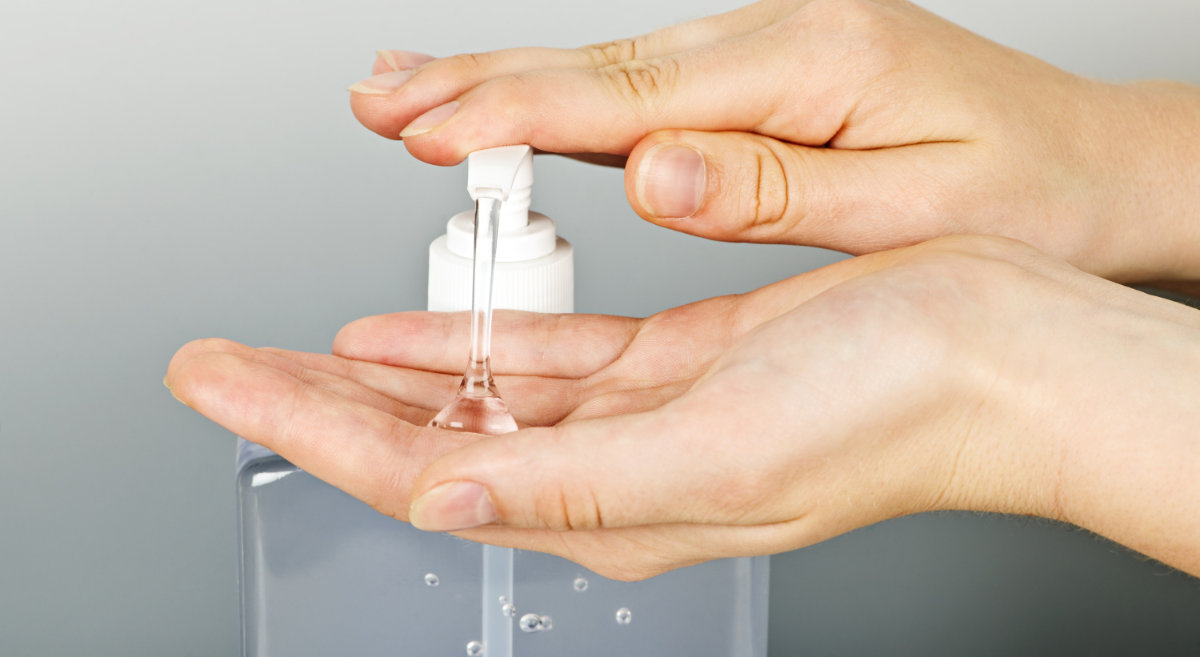It might be a good way to kill germs, but hand sanitiser shouldn’t replace washing your hands with soap and water, according to experts.
We’re well and truly into flu season, and with the number of deaths from coronavirus continuing to climb, staying healthy is on a lot of people’s minds.
Hand sanitiser, face masks and hand washing
Of course, only certain parts of the world are currently affected by coronavirus – now known as Covid-2019 – but colds and flu are a widespread problem. Maintaining good hygiene is key to keeping germs at bay. For many, this means regularly washing your hands, using hand sanitiser and even wearing face masks.

However, experts like Dr Jake Dunning, head of emerging infections and zoonoses at Public Health England, warns there is “very little evidence” of the benefits of wearing face masks outside a clinical setting.
Should you use hand sanitiser?
Squirting some sanitiser onto your hands is an easy way of staying hygienic, if you can’t make it to a sink to properly wash your hands. The revelations about face masks got us thinking though: do we place too much stock in the germ-fighting properties of hand sanitiser?
Luckily, experts do trust it. “We think of colds as being an airborne virus, but one of the main ways of spreading it is via contact, as the germs from coughing, sneezing or blowing your nose can live on hands and surfaces for 24 hours,” explains GP Dr Ross Perry. “Using hand sanitiser is a great way of preventing catching a cold through the spread of those germs.”
What type of hand sanitiser is best?
Perry recommends using alcohol-based sanitisers, which can kill “most bacteria and viruses in a few seconds.” Even if you’re used to squirting it onto your hands and moving on, for the best results he recommends you, “take a generous measure and rub in well for about 20 seconds, including between your fingers, under rings and up towards your wrist.”

Hand sanitisers – particularly those that come in small, hand-held bottles – are a good option for staying hygienic on the go. However, it doesn’t suit everyone. Perry notes: “Those with sensitive skin may find the alcohol rub irritates their hands. If this happens, stick to hand washing with warm water and a soap, or soap substitute, that agrees with your skin, and moisturise well afterwards.”
Not all hand sanitisers are created equal, and Perry recommends looking for a minimum alcohol content of 60%. You also shouldn’t completely forgo regular hand washes – soap and water is always the best option, but sanitiser is good for those in-between moments. They “are a disinfectant rather than a wash”, Perry explains, so if you’re hands are really dirty it “will be less effective”.
What else can help prevent coronavirus?
Perry also urges people to think about other ways germs could spread, saying: “Avoid sharing things like towels, cutlery or crockery. Give door handles a good clean with antibacterial spray or wipe every day, and ensure the [cold/flu] sufferer covers their mouth when coughing/sneezing, bins tissues and washes their hands regularly.”
Worried about travelling during the coronavirus outbreak? Read the Wise Living guide to coronavirus travel advice – what travellers should know.































































